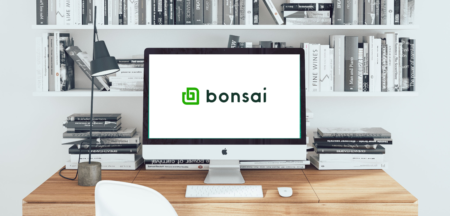Getting a mortgage as a freelancer can feel like navigating a maze. With changing income levels and non-traditional employment, many lenders see freelancers as risky borrowers. But don’t worry – it’s not impossible to get a good mortgage rate as a self-employed individual.
This article will break down the steps freelancers can take to secure the best mortgage rates in the current market.
Understanding the Freelancer’s Challenge
Freelancers face unique hurdles when applying for mortgages. Unlike traditional employees with steady paychecks, freelancers often have fluctuating incomes. This inconsistency can make lenders nervous. They worry about a freelancer’s ability to make regular mortgage payments over the long term.
Another challenge is proving income. While employees can simply show their W-2 forms, freelancers need to provide more extensive documentation. This might include tax returns, profit and loss statements, and client contracts. The extra paperwork can slow down the mortgage process and make it more complex.
💔 Break up with bad clients: There are better clients waiting for you. And SolidGigs can help you find them. Get a team of gig-hunters and a custom dashboard. Starting at just $31/mo. Learn more »
Lastly, many freelancers write off business expenses on their taxes. While this is great for reducing tax liability, it can also lower their reported income. Lower reported income can lead to less favorable mortgage terms or even outright rejection.
Preparing Your Finances
Before applying for a mortgage, freelancers should take steps to strengthen their financial position. This preparation can significantly improve the chances of securing a good rate.
1. Build a Substantial Savings Account
Having a large savings account shows lenders that you’re financially responsible and can handle income fluctuations. Aim to save at least six months’ worth of living expenses. This cushion can ease lenders’ concerns about your ability to make payments during lean times.
2. Improve Your Credit Score
A high credit score is crucial for getting the best rates as you click here for mortgage rates. Pay all bills on time, keep credit card balances low, and avoid applying for new credit before seeking a mortgage. Regularly check your credit report for errors and dispute any inaccuracies.
3. Reduce Debt
Lenders look at your debt-to-income ratio when considering your mortgage application. Pay down as much debt as possible before applying. This might mean tackling credit card balances, student loans, or car payments. The lower your debt, the more attractive you’ll be to lenders.
4. Maintain Consistent Income
Try to maintain a steady income for at least two years before applying for a mortgage. This consistency shows lenders that your freelance work is stable and reliable. If possible, secure long-term contracts with clients to demonstrate ongoing income potential.
Documenting Your Finances
Proper documentation is key for freelancers seeking mortgages. Be prepared to provide extensive financial records to prove your income and stability.
1. Tax Returns
Most lenders will want to see at least two years of tax returns. These documents show your income trends and business stability. Make sure your returns are accurate and filed on time. Some lenders may even require three years of returns for self-employed borrowers.
2. Profit and Loss Statements
Create detailed profit and loss statements for your business. These should show your income and expenses over time. If possible, have these statements prepared or reviewed by a certified public accountant. This adds credibility to your financial documentation.
3. Bank Statements
Provide several months of personal and business bank statements. These show your cash flow and can help verify the information in your tax returns and profit and loss statements.
4. Client Contracts
Long-term client contracts can demonstrate future income potential. If you have any ongoing agreements with clients, include these in your documentation package.
5. Business License and Registration
Include copies of your business license and registration documents. These prove that your freelance work is a legitimate business operation.
Choosing the Right Mortgage Type
Freelancers have several mortgage options to consider. Each type has its pros and cons, so it’s important to understand which might work best for your situation.
1. Conventional Mortgages
These are standard home loans not backed by the government. They often require higher credit scores and down payments but can offer competitive rates for well-qualified borrowers. Some lenders offer conventional loans specifically designed for self-employed individuals.
2. FHA Loans
Backed by the Federal Housing Administration, these loans often have more lenient credit requirements. They can be a good option for freelancers with lower credit scores or smaller down payments. However, they require mortgage insurance, which can increase the overall cost.
3. VA Loans
For freelancers who are veterans or active-duty military members, VA loans can be an excellent option. They often offer lower rates and don’t require a down payment. The qualification process can be more flexible for self-employed individuals.
4. Bank Statement Loans
Some lenders offer mortgages based on bank statements rather than tax returns. This can be beneficial for freelancers who have significant business write-offs. However, these loans often come with higher interest rates.
Finding the Right Lender
Not all lenders are equally friendly to freelance workers. It’s crucial to shop around and find a lender who understands the unique financial situation of self-employed individuals.
1. Research Freelancer-Friendly Lenders
Some banks and credit unions specialize in working with self-employed borrowers. Look for lenders who advertise mortgages for freelancers or small business owners. These institutions often have more experience evaluating non-traditional income sources.
2. Consider Online Lenders
Many online lenders offer more flexible qualification criteria. They may be more open to working with freelancers and can often process applications more quickly than traditional banks.
3. Work with a Mortgage Broker
A mortgage broker can be a valuable ally for freelancers. They have relationships with multiple lenders and can help find those most likely to approve your application. Brokers can also guide you through the documentation process and explain different loan options.

4. Check with Local Credit Unions
Credit unions often have more flexible lending criteria than large banks. They may be more willing to consider the unique aspects of freelance income when evaluating your application.
For those seeking an effective way to secure favorable mortgage terms despite fluctuating freelance income, exploring self-employed mortgage solutions can make a substantial difference. These specialized loan products are designed to accommodate the unique financial documentation and income structures presented by self-employed applicants. They provide viable alternatives that take into account factors like cash reserves, credit strength, and the ability to demonstrate a steady flow of long-term contracts or projects.
Negotiating Your Rate
Once you’ve found potential lenders, it’s time to negotiate for the best possible rate. Here are some strategies to help you secure a favorable deal.
1. Get Multiple Quotes
Obtain mortgage quotes from several different lenders. This gives you leverage in negotiations and ensures you’re getting the best available rate. Don’t be afraid to tell lenders about competing offers – they may be willing to match or beat them.

2. Consider Buying Points
Mortgage points allow you to pay an upfront fee to lower your interest rate. This can be a good strategy if you plan to stay in the home for a long time. Calculate the break-even point to see if buying points make sense for your situation.
3. Offer a Larger Down Payment
If possible, consider making a larger down payment. This reduces the lender’s risk and can lead to a lower interest rate. It also helps you avoid private mortgage insurance on conventional loans.
4. Highlight Your Financial Strengths
When talking with lenders, emphasize your financial strengths. This might include a high credit score, substantial savings, or a history of consistent income. Help the lender see you as a responsible borrower despite your non-traditional employment.
5. Be Prepared to Explain Income Fluctuations
If your income has varied significantly over the past few years, be ready to explain why. Perhaps you took time off for additional training or had a particularly large project one year. Providing context can help lenders understand your income patterns.
Improving Your Chances of Approval
Even with careful preparation, getting approved for a mortgage as a freelancer can be challenging. Here are some additional steps you can take to improve your chances.
1. Consider a Co-signer
If you’re having trouble qualifying on your own, consider asking a family member or close friend to co-sign the mortgage. This can help you secure a better rate, but remember that the co-signer is equally responsible for the loan.
2. Reduce Business Write-offs
While it’s tempting to maximize tax deductions, consider reducing your business write-offs in the years leading up to your mortgage application. This will increase your reported income, potentially making you more attractive to lenders.
3. Build a Strong Business Credit Score
In addition to your personal credit score, work on building a strong business credit profile if you have a business apart from your freelance job. This can demonstrate the stability and credibility of your freelance work.
4. Consider a Larger Down Payment
If possible, save up for a larger down payment. This reduces the lender’s risk and can help offset concerns about your variable income.
Staying Informed About Market Trends
The mortgage market is constantly changing. Staying informed about current trends can help you time your application for the best possible rates.
1. Follow Financial News
Keep an eye on financial news sources for information about mortgage rate trends. Understanding the broader economic factors that influence rates can help you make informed decisions.
2. Use Rate Comparison Tools
Many websites offer tools to compare current mortgage rates from various lenders. Check these regularly to stay updated on the best available rates.
3. Consider the Timing of Your Application
If possible, try to apply for a mortgage when your freelance income is at its highest. This might mean waiting until after a big project or during your busiest season.
4. Be Patient and Persistent
Securing a mortgage as a freelancer might take longer than it would for a traditional employee. Don’t get discouraged if you face initial rejections. Keep improving your financial profile and exploring different options. With persistence and the right preparation, you can find a mortgage that works for your freelance lifestyle.
Final Thoughts
While getting a mortgage as a freelancer can be challenging, it’s far from impossible. By understanding the unique hurdles, preparing your finances thoroughly, and choosing the right lender and loan type, you can secure competitive mortgage rates. Remember, the key is to present yourself as a stable, responsible borrower despite your non-traditional income. With careful planning and persistence, your dream of homeownership can become a reality, even in today’s complex mortgage market.
Keep the conversation going...
Over 10,000 of us are having daily conversations over in our free Facebook group and we'd love to see you there. Join us!



